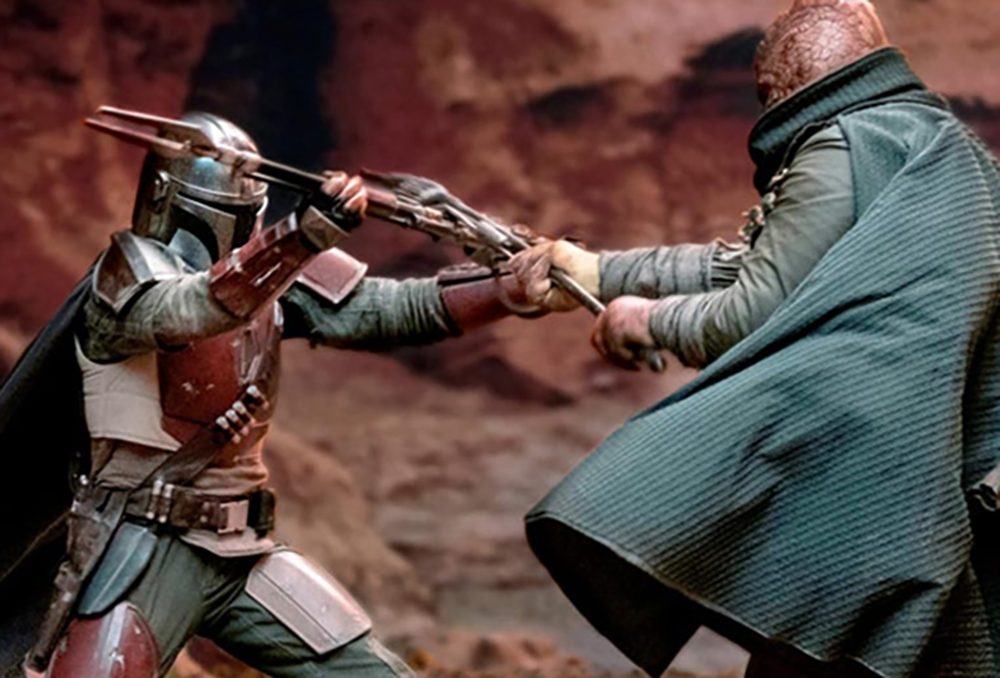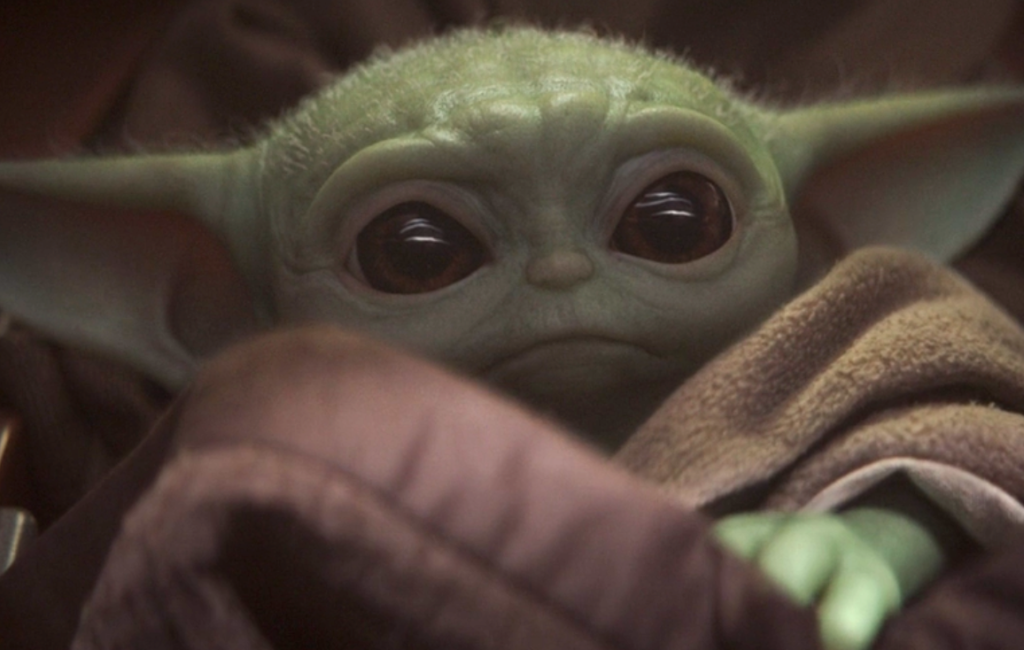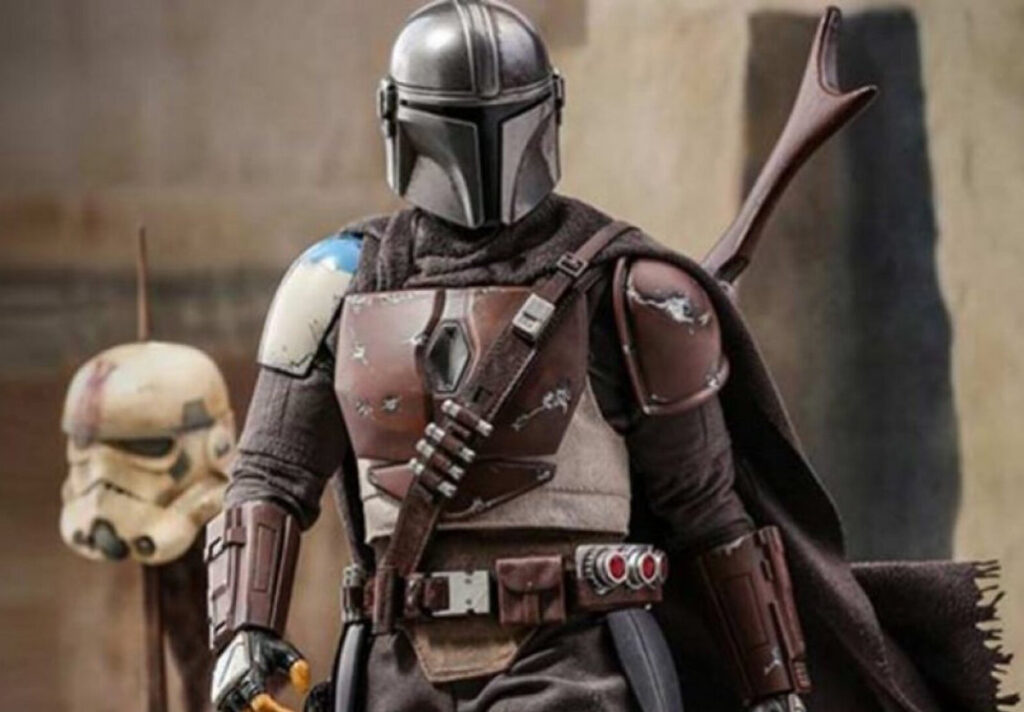The problem with the “Star Wars” sequel trilogy (“The Force Awakens,” “The Last Jedi,” and “The Rise of Skywalker”), besides lackluster character development, is contradiction. “The Last Jedi,” though not without its flaws, managed to be an original take on the “Star Wars” franchise, showing that it didn’t matter who the lead character Rey’s parents were, or who the big bad Snoke was. And that was refreshing in a franchise where half of it is about relatives being good or evil. But when “The Last Jedi” was poorly received by fans, they reversed all of that in “The Rise of Skywalker,” making Rey’s grandpa a Sith Lord and having Palpatine return. This left an extremely bad taste in the mouth of the audience.
And that’s why “The Mandalorian” is so brilliant. No contradiction, no stupid plot twists. The Disney+ original series brings Star Wars back to its roots: a space western full of betrayal, intrigue, and yes, adorable creatures.
“The Mandalorian,” while sometimes stopping for “monster of the week” episodes, is mostly about a Mandalorian bounty hunter being the reluctant protector of a very rare—and very valuable—creature. There’s a certain quality in “The Mandalorian” that I rarely see elsewhere: true freshness. Something about the show evokes something so new and slick. Most of that would have to be contributed to the truly stellar cinematography and set design. These environments are made from new technology that would otherwise be used as the landscapes for video games, making for a realistic yet striking setting.

A problem with many shows is the need to fulfill a specific run-time, either about 21 minutes for sitcoms or 42 minutes for dramas. “The Mandalorian” is not bound to such restraints, as some episodes are as short as 30 minutes, and others as long as an hour. This makes the pacing great, with no episodes overstaying their welcome because they can be as long as the creators choose.
Pedro Pascal does such an exemplary job as The Mandalorian, also known as Din Djarin. Although only showing his face once in the entire season, he manages to convey so much emotion through tone of voice and body language. Carl Weathers plays Greef Karga, the untrustworthy leader of the Bounty Hunter’s Guild, who often says some of the funniest lines of the show. There’s also Cara Dune (Gina Carano), an ex-Rebel Shocktrooper. The rapport between the three of them, though rare, is extremely memorable. And of course, there’s Baby Yoda, the selling point of the show for many casual Star Wars fans. You can’t really blame them. The Child is not only extremely important to the plot of the show, but arguably the cutest thing in the Star Wars universe.
The bookend episodes of the show are certainly the strongest, as that’s when the plot is really being driven forward. “Episode 8: Redemption,” the finale, was definitely the best of the season, offering heartbreaking deaths and a glimpse into the future of the show. “Episode 3: The Sin” was also incredible. (Spoilers) After returning Baby Yoda to his Imperial client, The Mandolorian changes his mind and shoots his way back to his adorable little friend. It delivers some of the best action sequences, with The Mandolorian absolutely slaughtering Stormtroopers. It also gave us lots of Mandalorian lore, and shows how much of a family they really are.
The middle episodes are where the show struggles the most. I wouldn’t call them filler, but they’re more like stops on the way to a bigger and more exciting finale. I wouldn’t normally mind it; I don’t need shows to be just like extended movies, and I honestly think that it’s a downgrade from self-contained episodes. But it’s obvious that the writers cared more about the main story than these little side adventures.

“Episode 4: Sanctuary” was a pretty solid episode if I had never seen Akira Kurosawa’s “Seven Samurai.” Unfortunately, I have. It was plenty entertaining, but it didn’t offer anything remotely original, and simultaneously slowed the main story down to a halt.
“Episode 5: The Gunslinger” gave us a glimpse of Tatooine, the home planet of Anakin and Luke Skywalker. The fan service was fine and good, but when a rookie bounty hunter that The Mandolorian has to help comes into the mix, it starts to go way downhill. The actor of the rookie, Jake Cannavale, was simply not very good, and his betrayal was extremely obvious. But it gave us some cute Baby Yoda moments and introduced us to the hilarious Amy Sedaris. So I guess it’s a win.
“Episode 6: The Prisoner,” while not a driving force for the plot, was a huge highlight for me. “The Mandalorian” loves to experiment with different genres, and “The Prisoner” was the best example of that. The first half was a heist, in which The Mandalorian and a ragtag team of criminals try to break out a prisoner from a Republic ship. But when the team inevitably turns on Din, it slides more into the horror genre. He begins taking them out one by one, Xenomorph style, and it’s an absolute treat.
In an era where every single new series is a massive hit, it’s rare to find one so fresh and original as “The Mandalorian,” while still maintaining the factors that make its franchise iconic. From barren desert planets to landscapes filled with lava, every single moment hits. Hopefully, it’s a representation of the future of “Star Wars”—and streaming as a whole.


